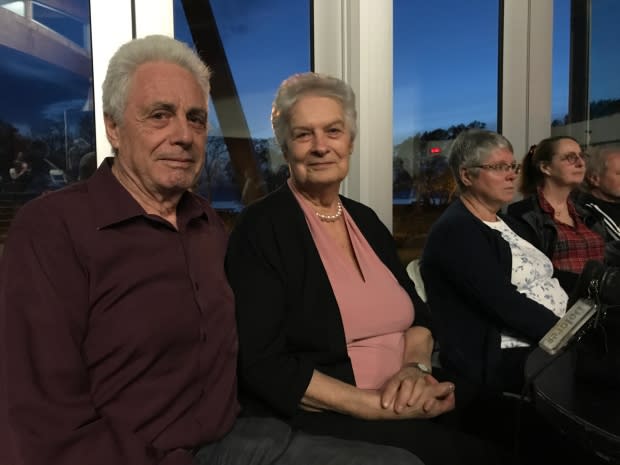Quebecers dance their way into the hearts of newcomers
A pair of weather-worn leather shoes taps out the steady rhythm as l'Orkestrad de Kamouraska performs a traditional Québécois reel on stage.
The evening's câller barks out instructions, and dozens of dancers attentively follow — stepping to the right, stepping to the left, spinning their partner 'round and 'round.
At first glance, it may look like any other traditional music celebration.
But this one in Saint-Jean-Port-Joli has an inviting twist.
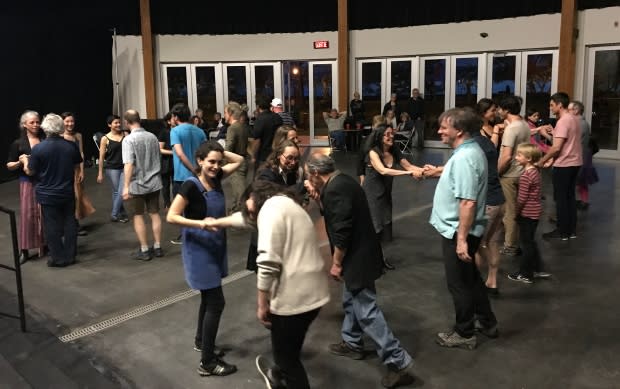
The locals and old-timers promenading on the dance floor are paired up with recent immigrants to Quebec.
People from places like Germany, France and Tunisia nervously take to the dance floor, crooking their elbow into the arms of strangers and new friends.
Young Algerian girls are captivated by the movements, bouncing their knees to the rhythm of the beat as their parents laugh and try to follow along.
It's a cultural exchange, designed to introduce newcomers to the region to the music and dance unique to Quebec, all while breaking down barriers and shyness.
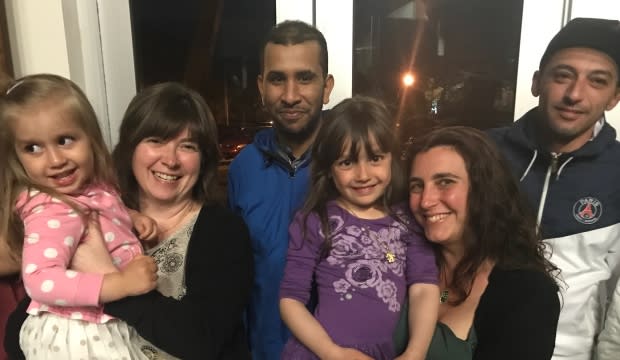
Industries in the municipal regional county of L'Islet have hired workers from across the country and around the world to keep up with Quebec's worker shortage.
"We're talking about welders, carpenters, engineers, machinists, but also agricultural workers and people who work in the restaurant and tourism industry," explains Rachelle Després.
She's one of the people who helped create the welcoming committee, which began organizing and hosting events in the spring of 2018.
"Sometimes those new arrivals can feel isolated, overwhelmed when they move here. We want to change that."
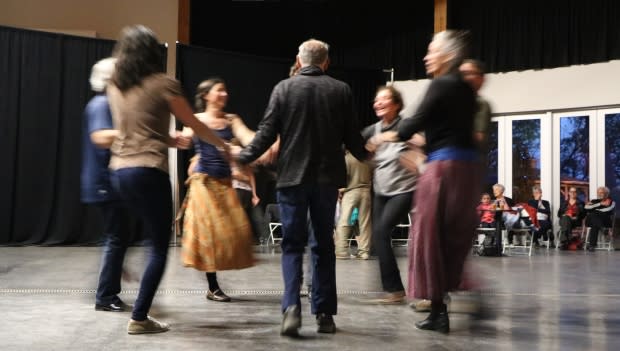
Sabrina Amdaoui moved to the region from Algeria with her husband and three girls this past record-breaking snowy winter.
"The winter was ... interesting," says Amdaoui, with a laugh.
"In Algeria, we have sun all year round!"
Now that the days are getting longer, the family is happy to take part in social outings like la veillée.
"It's nice to come here and meet people, learn something new."
Her two-year-old daughter, nicknamed Bina, is hypnotized by the dancers and eagerly tries new moves.
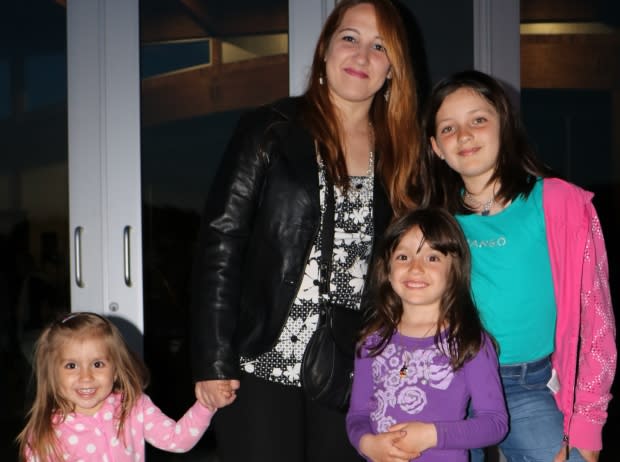
Amdaoui and her family are one of about 50 immigrants to the region in the last year.
That influx of newcomers, who often arrive all at once, can have a big impact on the region's towns and villages, most of which have a population of between 3,000 and 3,500.
In addition to offering practical guidance and resources, the welcoming committee has organized events that foster friendships and cultural exchanges.
"A love of good food, good music is something everyone can relate to," Marianne Legendre says.
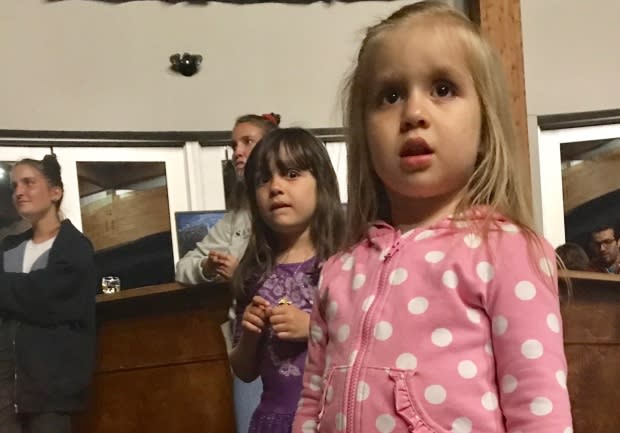
Legendre, a big music lover, was one of the people who helped co-ordinate the musical celebration.
The committee has also hosted potluck dinners, with people bringing traditional dishes from places like Morocco, Tunisia, Algeria and the Philippines.
"We can learn from them, and we want to be open with them."
"This is us: this is what we can do for fun here. What do you like?" asks Legendre.
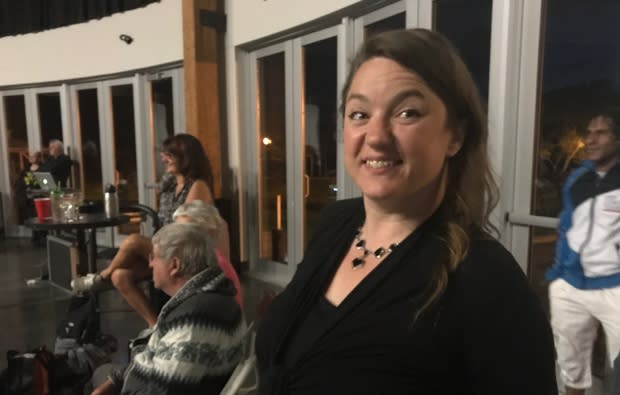
"We have a lot of immigrants in my village of Saint-Roch-des-Aulnaies," says Léon Chouinard.
Chouinard, 78, travelled to Saint-Jean-Port-Joli in part because of nostalgia for his youth, when these kinds of traditional dances would take place twice a week, year-round.
He's overjoyed to see the tradition return to his part of the province, but with an extra welcoming appeal, and he thinks more towns and regions across Quebec should follow Saint-Jean-Port-Joli's example.
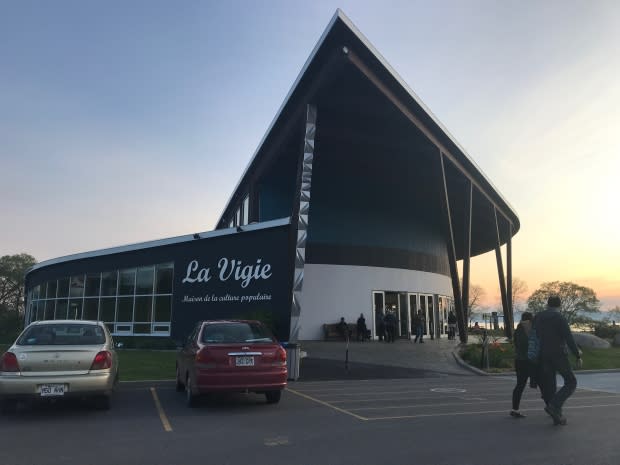
"Myself, the older generation, we won't be here forever. We need help. We want to share."
"There is space for new arrivals, and we have to help them in finding ways to integrate into Quebec society, in our villages, in our regions."
"They are our future."
